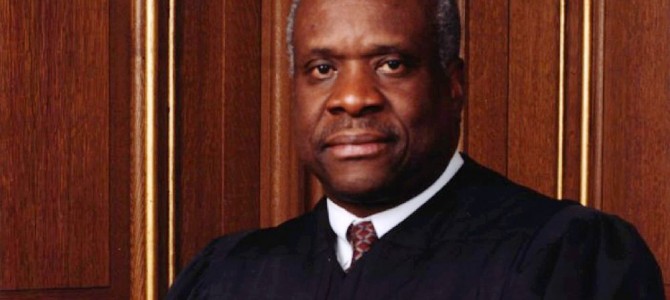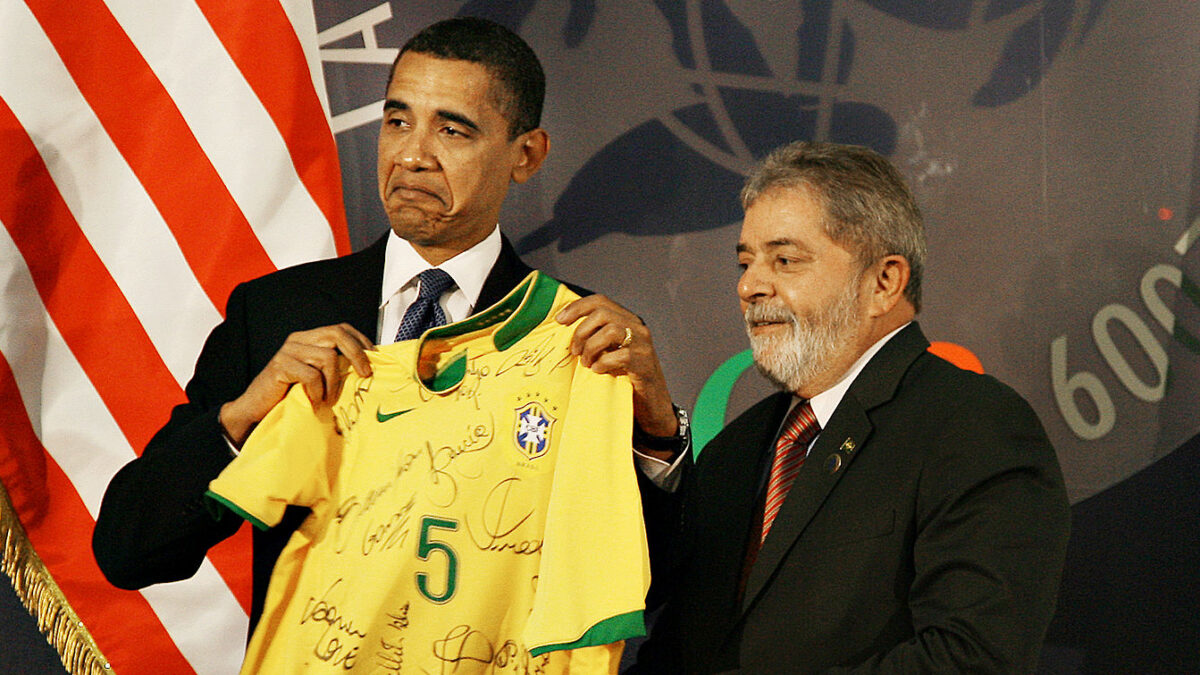
Maureen Dowd has an unfortunate habit of smearing Supreme Court Justice Clarence Thomas any time she addresses the topic of sexual harassment. Whether this tendency reflects partisan journalism or something more insidious, I hesitate to speculate. But her column this past Sunday is just more of the same.
In it, she refers to Thomas as “the creepy guy who acted pervy” toward Anita Hill, and she portrays the Hill-Thomas controversy as the classic example of sexual harassment in the workplace.
Of course, nothing could be further from the truth. Although Dowd does not mention it, Hill remains the only woman who has ever alleged that Thomas used such language in the workplace. That is far different from the typical sexual harassment case, or indeed any of the recent high-profile sexual harassment cases.
Common experience tells us that men who behave in this inappropriate manner do not just do it once. They victimize women over and over again. Yet after 25 years, Hill remains the only woman who claims that Thomas used pornographic language in the workplace.
Mounds of Evidence Contradict Hill’s Story
Dowd also neglects to mention that the American people, after watching the Thomas-Hill hearings live—unfiltered by the media spin machine—believed Thomas. According to a New York Times/CBS News poll conducted several months after the hearings, “Americans still favor[ed] the judge’s confirmation to the Supreme Court by a ratio of 2 to 1.” They favored his confirmation because they simply believed him more—much more: 58 percent to only 24 percent believing Hill. There was no gender gap on disbelieving Hill. Only 26 percent of women believed her, compared to 22 perent of men.
One of the key reasons Americans believed Thomas was the sheer number of women who came forward to defend him. Twelve of his former colleagues, including several who were Hill’s friends and colleagues, testified under oath that they did not believe Hill’s allegations and that Thomas would never say such lurid things. Indeed, Thomas had been through four previous FBI background checks, and no such allegations had ever surfaced.
The U.S. Senate voted to confirm Thomas because Hill’s story did not add up, and her testimony in front of the committee was riddled with lies. Try as she might, she could not explain away her decision to follow Thomas to another job after he had allegedly harassed her, or her repeated phone calls to Thomas over the years after she left government employment.
Her “corroborating witness,” Susan Hoerchner, found herself in the same boat, repeatedly backtracking on her testimony. Hoerchner told the committee staff, for example, that she was sure the harassment occurred in the spring or summer of 1981 before she left Washington, but Hill had not even begun working for Thomas at that time.
The problems with the testimony of Hill and her corroborating witnesses are too numerous to review here, but here is a website with a good summary of all the discrepancies. Dowd also conveniently leaves out that Sen. Nancy Kassebaum concluded that Hill did not prove her case and voted to confirm Thomas.
Other Evidence Contradicts These Accusations
Given that the facts weigh so heavily in favor of Thomas, as evidenced by a Washington Post editorial also concluding that Hill did not prove her case, one might wonder why Dowd can feel so confident in her smears. I can only speculate that she’s bought into the Left’s claim that Thomas did this to other women, a canard that the little-watched hatchet job HBO movie “Confirmation” perpetuates. That claim is simply false. No other woman ever accused Thomas of discussing pornography in the workplace, and a close review of the claims these women did make only raises further doubts about Hill’s story.
Perhaps the best-known of this crew was Angela Wright, who came forward after Hill made her allegations. Thomas had fired Wright from her Equal Employment Opportunity Commission job after she referred to another colleague by a homophobic slur. During the FBI’s investigation into Wright’s allegation, Wright’s friend said she was still angry at Thomas and wanted to get him back.
Wright had also previously lodged baseless racism charges against a former supervisor (in that case, a white woman) who had been nominated for another post. Wright even contacted the Senate committee considering the nomination, and the committee quickly determined her charges were indeed baseless. Perhaps because of her credibility issues, Wright took the advice of counsel and decided not to testify under oath against Thomas. But even Wright never claimed that Thomas talked about pornography in the workplace or anywhere else.
Probably Anita Hill Was Lying All Along
Why would Hill decide to testify before a Senate committee if she were lying? My best guess is that, for partisan reasons—Hill was a lifelong liberal Democrat, a fact deliberately obscured during the hearings when she was presented as a conservative, Robert Bork-supporting Reaganite—Hill made the allegation to quietly scuttle the nomination but was then caught up in a storm she could never have imagined.
Hill set this allegation in motion by contacting a friend in DC shortly after Thomas was nominated. That rumor then made its way to Senate committee staff, but once they contacted Hill, she was repeatedly evasive and demanded anonymity, twice refusing an FBI interview. Only after the committee refused to pursue the rumor under such star chamber conditions did she relent. That behavior is consistent with an attempt to torpedo the nomination with little personal accountability. Once her allegations were leaked, she was locked into a story.
We don’t like to acknowledge that people would make up such horrible lies about another person. But it can and does happen: Recall the scandalous but totally disproven accusations against the Duke Lacrosse team and the University of Virginia fraternity.
Dowd recently said “Feminism sort of died” in the 1990s when its leaders defended the sexual misconduct of Bill Clinton “to protect the progressive policies for women that Bill Clinton had as president.” The flip side of that is feminists, including Dowd, who use baseless allegations of sexual misconduct to attack a political opponent such as Thomas. This type of weaponization has hurt progress on stamping out sexual harassment.
Perhaps Dowd does not feel constrained by journalism ethics because she writes an opinion column for The New York Times, but to peddle the Hill story as if it were fact in spite of all evidence suggesting it to be fiction is the height of irresponsible journalism. To perpetuate this lie is as morally reprehensible as starting it in the first place.









